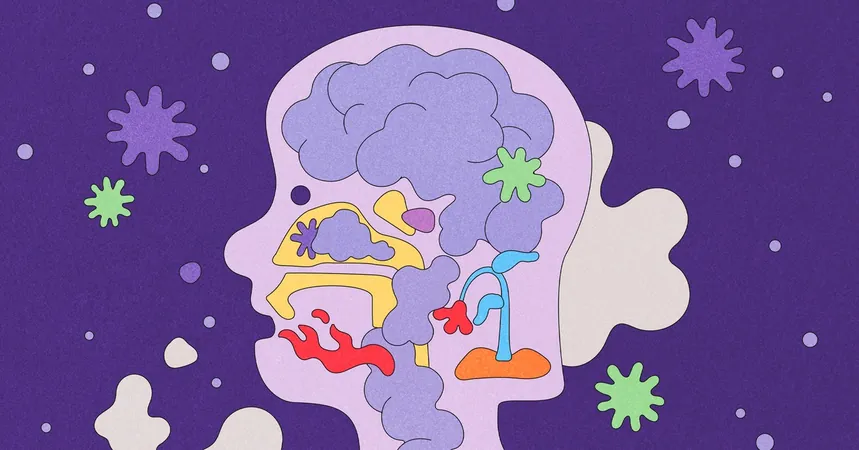
Parents Must Rise Up for Clean Air: The Fight for Our Children’s Future
2025-01-04
Author: Yu
Introduction
In a revelation reminiscent of the early warnings about climate change, the pressing question of why humanity has not effectively acted to safeguard our environment looms larger than ever. Decades ago, renowned psychologist B. F. Skinner pointed out that our actions are largely dictated by past experiences, leading us to prioritize immediate rewards over long-term survival. As we stand on the precipice of climate calamity, it is apparent that this mindset must shift, particularly among parents who are vital to the fight against environmental deterioration.
Impact of Climate Change on Children
As a pediatrician practicing in Reno, Nevada—the fastest-warming city in the United States—I see firsthand the impact of climate change on the children I care for daily. Skinner believed that the consequences of environmental degradation must evolve from a future threat to an immediate reality to provoke change. Tragically, I foresee that by 2025, the detrimental effects of climate change will no longer be abstract; the health risks posed to our children will be unmistakable and urgent.
Air Quality Risks
In recent years, cities like Reno have become engulfed in smoke from rampant wildfires, creating hazardous air quality conditions that afflict around 65 million Americans, predominantly in the Western states. While the physiological risks of poor air quality are well-documented, many parents may not realize that children are particularly susceptible. Their developing lungs and bodies are several times more vulnerable, leading to long-term health consequences, such as stunted lung growth and chronic respiratory issues.
Scientific Studies and Findings
Scientific research increasingly reveals that exposure to fine particulate matter from pollution, including that from wildfires, can infiltrate the bloodstream and even reach the brain—heightening the risk of neurodevelopmental disorders. Studies have demonstrated alarming correlations: prenatal exposure to air pollution may contribute to rising rates of autism and attention deficit hyperactivity disorder (ADHD). The evidence is compelling—from brain imaging techniques that show altered neural structures to large-scale epidemiological studies indicating a clear link between air pollution exposure and developmental disorders.
Parental Advocacy
Parents who become aware of these harsh realities are often alarmed and motivated to advocate for cleaner air. Imagine the transformative power of concerned parents across the nation demanding clean energy solutions for schools, homes, and communities. As issues like air pollution take center stage in public health discussions, parents will realize that climate change doesn't just threaten future generations; it directly endangers their children today.
Global Heat Crisis
Moreover, rising heat waves, particularly in developing countries, will exacerbate health crises; many families lack adequate access to air conditioning, leading to increased rates of pregnancy complications, low birth weights, and infant mortality—tragedies that may soon dominate headlines. This critical moment will spur a media shift, where the impact of these heat-related issues is described not just as an unfortunate consequence of climate change, but as a significant failure of corporate and governmental responsibility.
A Note of Hope
While Skinner warned that our reactions may come too late, the emergence of renewable energy technologies presents a beacon of hope. As parents increasingly recognize solar energy, heat pumps, and insulation as essential tools for protecting their children, we could witness a nationwide surge in demand for sustainable solutions comparable to past public health movements.
Conclusion
Ultimately, this problem extends beyond statistics and global warming reports—it strikes at the heart of our families. The fight for clean air and a sustainable future for our children is a deeply personal mission that must ignite a collective parent-led movement. With the potential price of fossil fuel dependency now starkly visible in the lives of our children, parents can transform their fears into action and become powerful advocates for a cleaner, safer world. Together, we have it within us to ensure a healthier planet for the generations to come!
 Brasil (PT)
Brasil (PT)
 Canada (EN)
Canada (EN)
 Chile (ES)
Chile (ES)
 Česko (CS)
Česko (CS)
 대한민국 (KO)
대한민국 (KO)
 España (ES)
España (ES)
 France (FR)
France (FR)
 Hong Kong (EN)
Hong Kong (EN)
 Italia (IT)
Italia (IT)
 日本 (JA)
日本 (JA)
 Magyarország (HU)
Magyarország (HU)
 Norge (NO)
Norge (NO)
 Polska (PL)
Polska (PL)
 Schweiz (DE)
Schweiz (DE)
 Singapore (EN)
Singapore (EN)
 Sverige (SV)
Sverige (SV)
 Suomi (FI)
Suomi (FI)
 Türkiye (TR)
Türkiye (TR)
 الإمارات العربية المتحدة (AR)
الإمارات العربية المتحدة (AR)